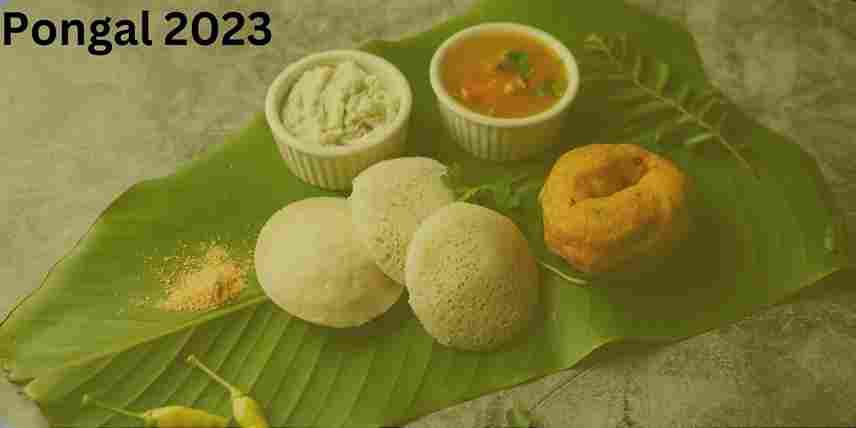Pongal is a vibrant four-day Hindu festival celebrated in Tamil Nadu, typically held in January. It marks the harvest season and is a time for people to come together, express gratitude for the blessings of the sun, and celebrate nature’s bounty.
Day-by-Day Celebration of Pongal
Day 1: Bhogi Pongal
The festival begins with Bhogi Pongal. On this day, people prepare a special dish called “pongal,” made with rice, lentils, and milk, which is offered to the sun as a token of gratitude for its life-giving energy. The day is marked by bonfires, where old clothes and items are burned to signify a new beginning.
Day 2: Surya Pongal
The second day, Surya Pongal, is dedicated to worshipping the sun. People perform special rituals and offer prayers to the sun, seeking its blessings for a prosperous harvest. This day is the main day of the festival and involves elaborate preparations and rituals.
Day 3: Maattu Pongal
Maattu Pongal is the third day, dedicated to cows, which hold a sacred place in Hinduism. On this day, cows are decorated with colorful garlands and painted horns. Special rituals are performed to honor these animals, acknowledging their role in farming and agriculture.
Day 4: Kaanum Pongal
The final day, Kaanum Pongal, is a time for socializing and community bonding. Families visit friends and relatives, exchange gifts, and enjoy festive meals together. It is a day to celebrate the end of the festival and express gratitude for the blessings received.

The Essence of Pongal
Pongal is a significant festival in Tamil Nadu, celebrated with great enthusiasm by people of all ages. It is a time to come together, rejoice in the harvest, and give thanks for the sun’s blessings. Homes and workplaces are decorated with traditional adornments like mango leaves and colorful rangolis (patterns made with rice flour and colored powders).
Cultural and Traditional Activities
In addition to rituals, Pongal is rich with cultural events. These include music and dance performances, plays, and various cultural activities that highlight Tamil Nadu’s rich heritage.
Special Dish: Pongal
A central tradition of the festival is preparing the pongal dish with rice, lentils, and milk. This dish is considered auspicious and is often offered to the sun as a gesture of gratitude.
Gift-Giving and Social Bonding
Pongal is also a time for exchanging gifts and sweets with loved ones. It symbolizes the end of winter and the beginning of longer, sunnier days, bringing warmth and joy into people’s lives.
Apply Now Here:
Historical Significance of Pongal
Pongal is an ancient festival with a history spanning thousands of years. It is mentioned in various ancient Hindu texts and is one of the oldest festivals in the Hindu calendar. Historically, Pongal was a time to celebrate the end of the winter solstice and welcome the sun’s return. Over the centuries, the festival has evolved, yet it remains a vital part of Tamil Nadu’s cultural heritage.
Global Observance
While Pongal is primarily celebrated in Tamil Nadu, it is also observed by Hindus worldwide, including in parts of India, Nepal, Bangladesh, and Sri Lanka. Regardless of the location, the festival’s core essence of gratitude and celebration of the harvest remains unchanged.


Very nice article. I definitely appreciate this website. Thanks!
An interesting discussion is worth comment. I do believe that you need to write more about this topic, it might not be a taboo subject but typically people do not speak about such subjects. To the next! Cheers!!
I was extremely pleased to discover this site. I need to to thank you for ones time for this particularly wonderful read!! I definitely loved every part of it and i also have you saved as a favorite to check out new stuff on your blog.
Good day! I simply would like to offer you a huge thumbs up for your excellent info youve got here on this post. Ill be coming back to your blog for more soon.
Good post. I learn something new and challenging on websites I stumbleupon everyday. Its always exciting to read through articles from other writers and use something from other web sites.
You need to be a part of a contest for one of the most useful blogs online. I most certainly will highly recommend this blog!
Good write-up. I definitely appreciate this website. Continue the good work!
Good post. I learn something totally new and challenging on blogs I stumbleupon on a daily basis. Its always useful to read content from other authors and practice something from their websites.
http://shurum-burum.ru/